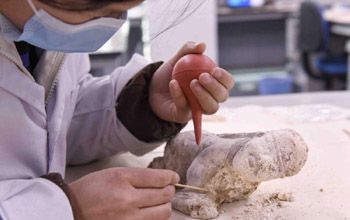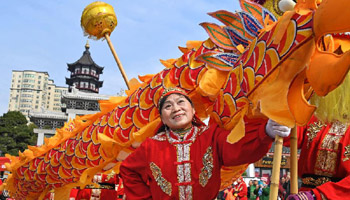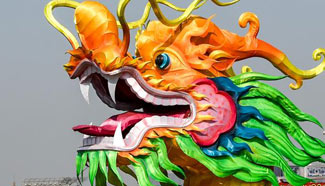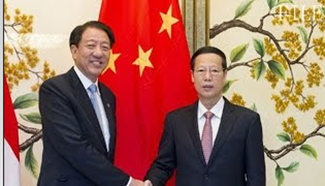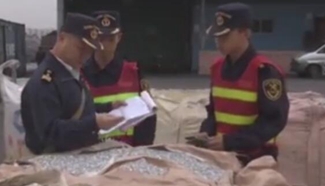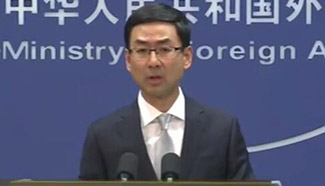LIMA, Feb. 28 (Xinhua) -- Policy decisions by China's top legislature and top political advisory body have an impact on the world at large, two leading Peruvian political observers have said.
Journalists Manuel Tumi and Jennyfer Salazar, who have been following China for a long time, spoke with Xinhua in the lead up to the upcoming fifth annual session of the 12th National People's Congress (NPC) and the fifth session of the 12th National Committee of the Chinese People's Political Consultative Conference (CPPCC) in early march.
The annual two sessions "are important not just for China, but for the globe," said Tumi, as "China is the world's second largest economy and any decisions adopted at either gathering are going to have an impact on how the global economy fares."
Salazar, with the Peruvian Institute of Radio and Television (IPRTV), underscored the significance of the sessions in reviewing policy and in giving voice to the various political sectors.
"The importance of these two sessions is obvious, not just for what they represent in terms of analyzing issues such as security, pollution, implementation of rural policies and technology, among others, but these sessions are also forums for the participation of different political groups," said Salazar.
"They combine their ideas, decisions or criteria, so they can all work together toward China's progress," Salazar said, adding "it is important to underline that policy is understood to be at the service of the people, and not the special interests."
BILATERAL TIES PROGRESSIVE
China's decision makers will be tackling both domestic and foreign policy matters, including the country's ties with Latin America, the observers noted.
"China's interest in strengthening bilateral ties with the region is evident," Salazar said, noting the Asian country has "major transactions in raw materials with countries such as Venezuela for its oil, Peru for its copper and Argentina for its soy, just to name a few."
She hoped that China will continue along the line of strengthening trade ties with the region and, as it did in 2016, continue to promote bilateral ties in other areas, such as education, culture and environmental preservation.
She also said that China is much more than an Asian trade giant, and it also serves as a model for many developing countries. "It is one of the most ancient cultures, and has an ethnic and cultural diversity that we Latin Americans want to learn more about," said Salazar.
Like many other countries that rely on trade with China, Peru's private and public sectors are keenly following development in China and its policy-making bodies, said Tumi.
"In Peru, there is special interest in the sessions of the NPC and CPPCC, as China is our country's top trade partner, with investments that surpass 14 billion U.S. dollars," said Tumi.
The two also have a free trade agreement in place since 2009.
"Bilateral ties are making stable progress and cooperation is in a permanent state of expansion, a favorable situation that was bolstered by the official visit that Chinese President Xi Jinping made last year," said Tumi.
Xi made a state visit in November, as Lima hosted the Asia-Pacific Economic Cooperation (APEC) forum, where he delivered a keynote speech.
BELT & ROAD BENEFITS
Both in Lima and later at the World Economic Forum in Davos, Switzerland in January this year, Xi championed free trade and globalization, at a time when the world's leading economy, the United States, appears to barricade itself behind import taxes and other protectionist measures, Tumi said.
China is proposing global schemes, such as the Belt and Road Initiative, to help drive economic growth, the analysts noted.
The initiative refers to the Silk Road Economic Belt and the 21st Century Maritime Silk Road, which aims to build a trade and infrastructure network connecting Asia with Europe and Africa along ancient trade routes.
"China's proposal aims to spur the process of economic globalization and is generating a lot of expectation in Peru," given its comprehensive strategic partnership with China, said Tumi.
According to Salazar, "the Belt and Road Initiative will not only promote the process of economic globalization, but also help to unite countries through cultural exchanges and other means, serving as a model to improve peoples' livelihood."


